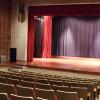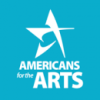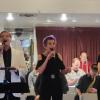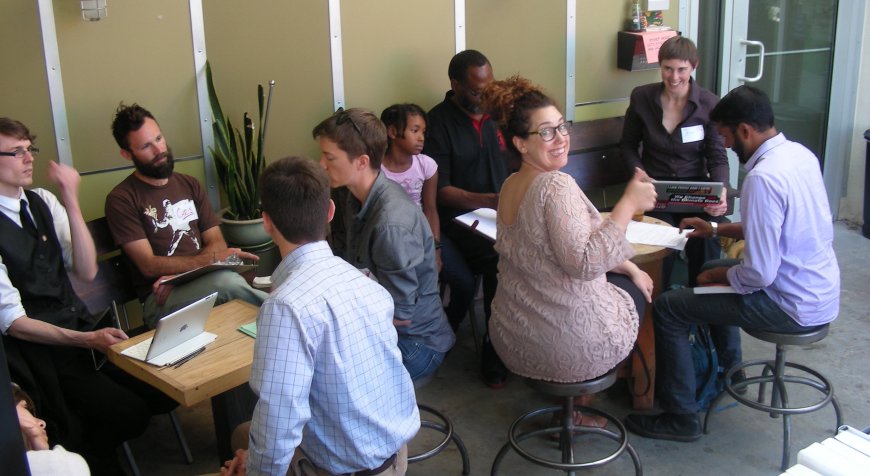
“Artists and arts organizations are facing unprecedented pressures in the current climate as a result of funding cuts, political pressures on nonprofit organizations, and heightened risks to vulnerable communities,” said attorney Hope Mohr.
According to Hope Mohr, the Artist Legal Cafe is “an artist-led initiative that offers direct services and capacity-building support to individual artists, artist collectives, and arts organizations.” It is the joint creation of Sustainable Economies Law Center, Vital Arts, and Movement Law.
Mohr also sees strength and promise in the Bay Area arts community. “Despite decades of challenges ranging from gentrification to pandemic, artists continue to be at the vanguard of social change and creative resilience,” she said.
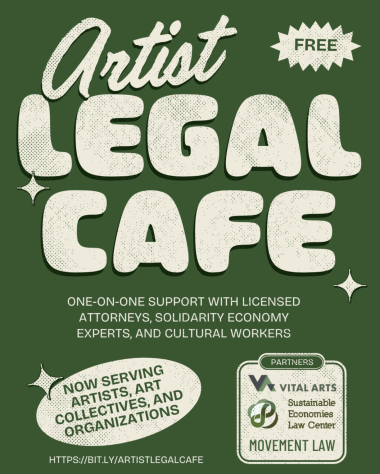
The Cafe is designed to provide artists one-on-one support on a wide range of topics, from licensed attorneys, solidarity economy experts, and cultural workers, all at no expense to the individual. The project will be led by Mohr, Sharmi Basu, and Hope Williams.
The first in-person Artist Legal Cafe is scheduled for August 21 in the Community Center at 1121 64th Street, Oakland. Mohr will lead a training called “Get Your (Art) House in Order,” from 3 to 3:30 p.m., followed by the Legal Cafe until 5 p.m.
Artists can use the Cafe to sit down with attorneys and get information on questions they have and solutions for problems. The event is open to the public; RSVP’s are encouraged.
In addition to her work as an attorney, Mohr is a dancer, choreographer, and activist. She founded Hope Mohr Dance's The Bridge Project (now Bridge Live Arts), which has served as a Bay Area performing arts presenting platform for over 10 years.
“The Artist Legal Cafe is a project of my law practice, Movement Law,” said Mohr, “a collaboration among Movement Law, the Sustainable Economies Law Center, and Vital Arts.”
She sees the Cafe as an extension of these organizations’ larger offerings to the arts community. “The legal and strategic support I provide to artists and arts organizations through Movement Law often has a longer arc than the services offered in the context of the Artist Legal Cafe,” she said.
Mohr further explained her practice. “My fees for the support that I offer through Movement Law (outside the context of the Artist Legal Cafe) depend on client capacity and the scope of work. All legal services offered at the Artist Legal Cafes are completely free, pro bono.”
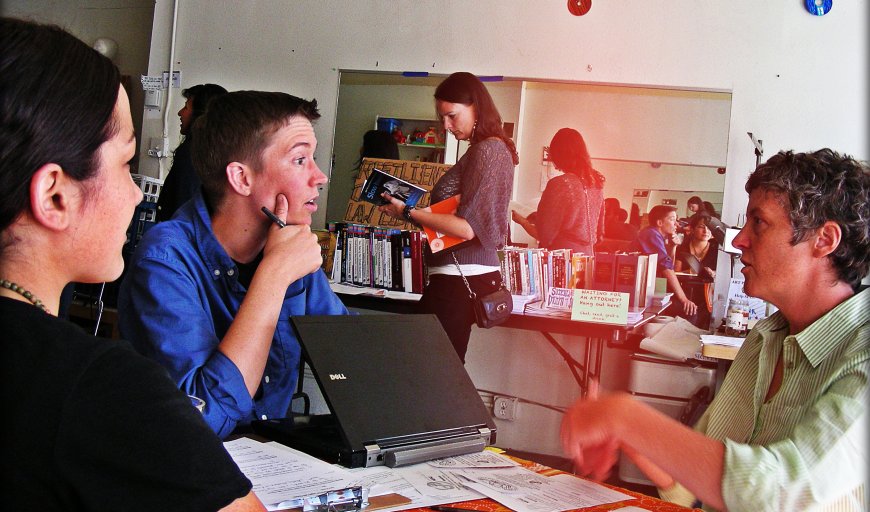
The Artist Legal Cafe will help artists do the following:
— Understand nuts and bolts issues like contracts, nonprofit incorporation, nonprofit best practices and compliance, intellectual property, grant writing and philanthropy, and fiscal sponsorship
— Transition a hierarchical nonprofit to a model of distributed leadership
— Conduct difficult conversations about race and reckoning with aesthetic bias
— Navigate the housing market
— Build financial literacy
— Engage as activists and advocates
— Know their rights
On September 11, the Cafe will be online; artists and arts organizations can sign up here. On October 30, the Cafe will be in-person at Local Economy; sign-up information will be posted at movementlaw.net.


